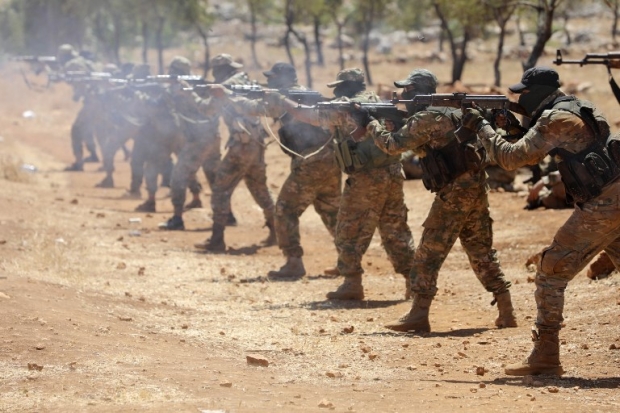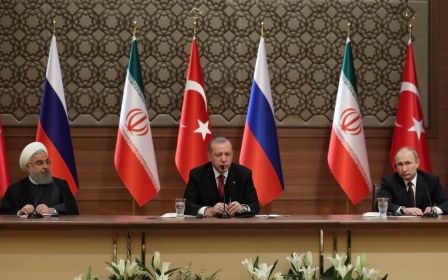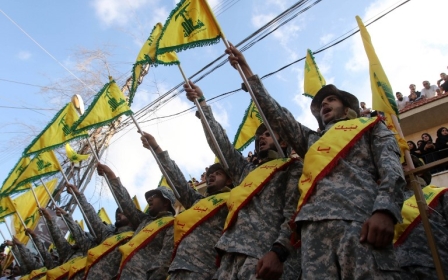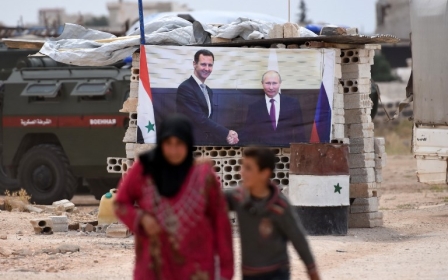Is HTS winning hearts and minds in Syria?
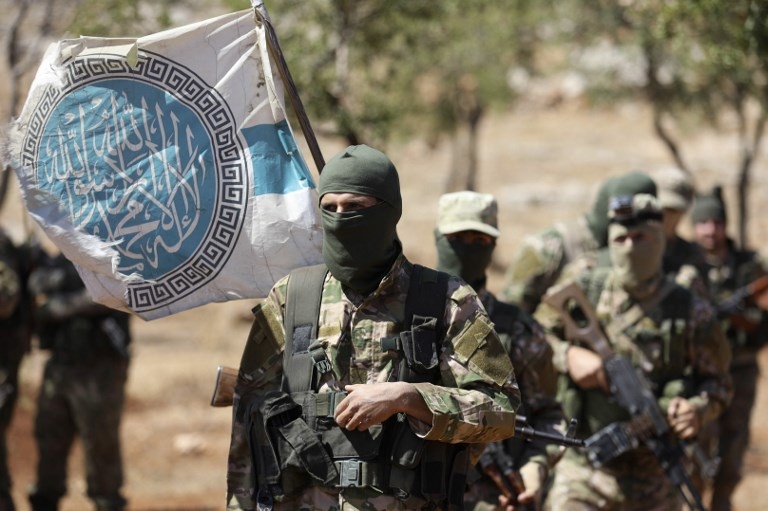
Syria's former al-Qaeda affiliate, Hayat Tahrir al-Sham (HTS), has recently increased its domination over the country’s final rebel-held pocket, which links Idlib province with rural Aleppo and rural Hama.
HTS’s swift but fierce attacks have forced some of its rival rebel groups, namely Ahrar al-Sham, to submit, while expelling others, namely Nour al-Din al-Zenki, to Afrin, which is under Turkey’s sphere of influence. Nevertheless, the group’s significant gains come with severe consequences for HTS and local inhabitants alike.
HTS and its affiliate - the Salvation Government - lack the resources and expertise required to fill the military and administrative vacuum left by their rivals. Failing to do that may increase local resistance against HTS and speed up a ruinous showdown with pro-regime forces.
Fragile alliances
HTS’s victory can partially be attributed to the group’s military power and successful tactics, yet the fragile alliances among rebel groups and within factions have left those other groups vulnerable. In its efforts to become the main, and eventually the only rebel actor, HTS has repeatedly used the same strategy to counter its enemies.
New MEE newsletter: Jerusalem Dispatch
Sign up to get the latest insights and analysis on Israel-Palestine, alongside Turkey Unpacked and other MEE newsletters
After a period of frequent skirmishes with a targeted faction, HTS ultimately either launches a large offensive to achieve a military victory, or besieges the hostile territories until they submit through negotiations. To speed up its conquest, HTS also brokers local deals with the communities and factions allied with the targeted group in order to neutralise them in exchange for protection.
HTS is closer than ever to establishing its version of the model implemented by Hezbollah in southern Lebanon or Hamas in Gaza
Due to this successful strategy, HTS has been able to drive its main competitors out of its areas of operation and capture the vast majority of strategic locations and transport routes in the northwest. Those deals have even succeeded in forcing rebel groups in areas outside HTS’s control to hand all governance and administrative functions in their areas over to the self-proclaimed Salvation Government, established in 2017 and dominated by HTS.
In short, HTS is closer than ever to establishing its version of the model implemented by Hezbollah in southern Lebanon or Hamas in Gaza.
To consolidate its military gains, HTS has been implementing a mixture of measures to reconcile with local communities in the recently seized areas. The group’s objective goes beyond eliminating its rivals or securing new financial resources: it is directly linked to HTS’s long-term goal of embedding itself in local communities and ruling them.
Protection assurances
Capturing new areas is usually accompanied by protection assurances from HTS for locals, including those who have resisted it. This has been the case across all areas captured in the group’s recent offensive, including former Zenki-controlled areas, Atarib and others.
HTS also announced the release of former Zenki fighters captured during its attacks, despite their active participation in the fight, and published photos of its preparations to distribute aid to civilians, including those based in the recently seized areas.
HTS has reached deals with the defeated factions to mitigate manpower shortages on the frontline with the regime. HTS’s offensive has pushed the majority of rebel fighters on the frontlines facing the regime to leave their positions, namely in rural Hama. It has not been able to replace them, as it lacks manpower.
HTS has used different tactics to win the support of those fighters or encourage them to keep their positions. The group announced after its victory that it would pay rewards to the fighters who had not abandoned their posts.
Additionally, HTS reached an agreement with Ahrar al-Sham and Suqour al-Sham, allowing them to preserve their outposts and weapons on the frontlines, as well as granting their fighters permission to eventually return in exchange for maintaining their guarding operations.
Theoretically, the agreement does not force Ahrar and Suqour to be affiliated with HTS, nor does it give the latter influence over them. The presence of rebel forces, who have limited-to-no influence in the areas ruled by HTS, could allow the latter to deflect the responsibility for its failures - both military and administrative - onto those groups.
Challenges ahead
Still, there are clear indications that the group’s strategy to cement its authority will face significant challenges.
In response to HTS’s military gains, a number of Western donors have suspended or terminated their funds to humanitarian and civil entities operating in areas controlled by the group. Medical centres were the first to be affected, while local councils and civil society organisations anticipate that their funds will soon dry up.
HTS and the Salvation Government will likely struggle to directly provide the suspended services due to its lack of resources. Its takeover could also precipitate an offensive by the Syrian government. Such attacks, even if they remain limited, could push local communities to protest against the group’s presence or authority in an attempt to stop the onslaught.
Despite its protection assurances, HTS has reportedly started targeting its opponents in former Zenki-controlled areas. HTS has verbally informed around 30 people in Daret Azzeh, in rural Aleppo, to leave the city and head to areas outside the group’s control. Those expelled include media activists, militants and civil servants. Such actions will likely prove counterproductive to HTS’s attempts to reconcile with local communities.
While the impact of HTS’s tactics to consolidate its power remains to be seen, the group is clearly determined to move beyond military means to ensure a lasting dominance in northwestern Syria.
The group’s opponents do not seem to have any strategy to counter HTS’s hearts-and-minds campaign, and their strategies seem to only increase civilian suffering, which could backfire and drive locals closer to HTS.
The views expressed in this article belong to the author and do not necessarily reflect the editorial policy of Middle East Eye.
This article is available in French on Middle East Eye French edition.
Middle East Eye delivers independent and unrivalled coverage and analysis of the Middle East, North Africa and beyond. To learn more about republishing this content and the associated fees, please fill out this form. More about MEE can be found here.



